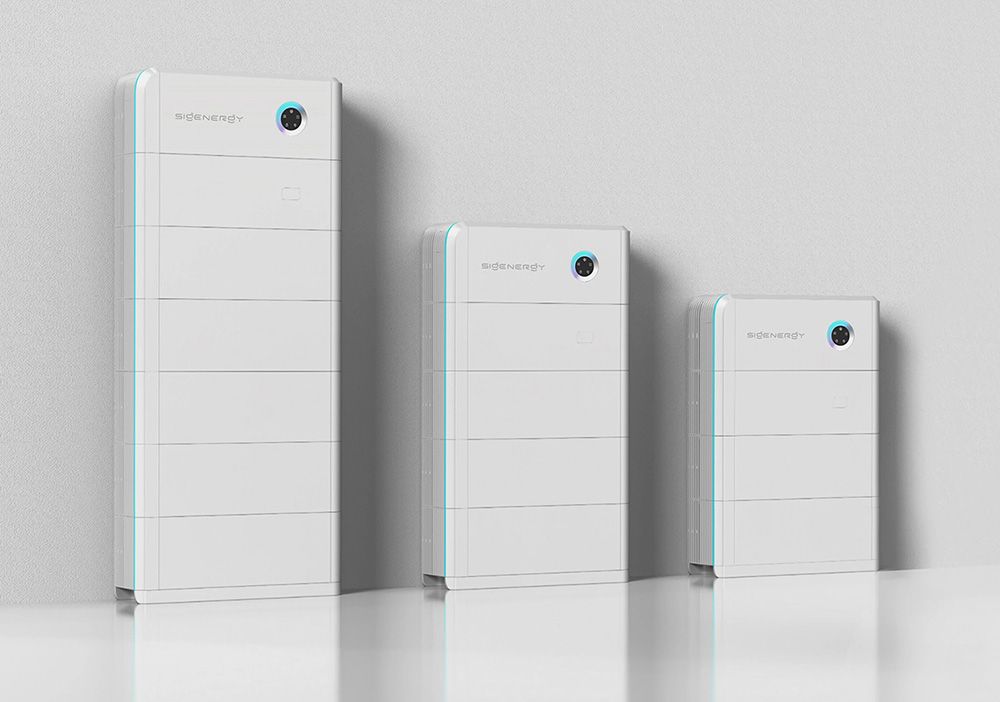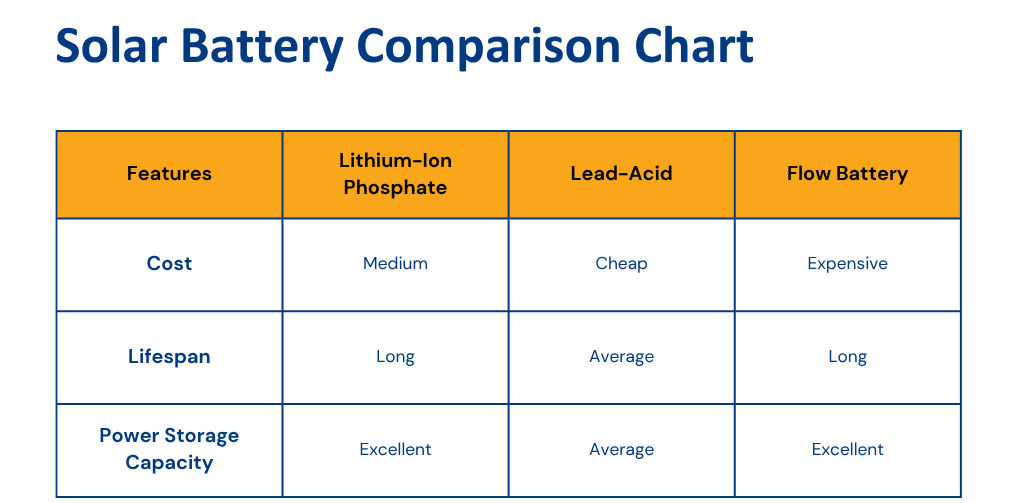11/09/2025
How Do Solar Batteries Work?

Feel like you have excess solar energy going to waste? You’re not alone. Many Perth homeowners see their solar panels generating power during the day, only for it to disappear when the sun sets. That’s where solar energy storage comes in. By adding a battery, you can store that excess solar energy that is generated during the day and use it when you actually need it—at night. With so many solar batteries available in Perth, choosing the right one can be an important consideration when trying to slash your energy bills. In this article, let’s break down exactly how solar batteries work to store and use excess solar energy, and the benefits of a battery system when added to your existing solar panel setup in Perth.
What is a Solar Battery?
A solar battery is a device that connects to your existing solar power system by storing the extra electricity your solar panels make during the day for use later on. Instead of returning excess electricity to the grid, the battery saves it for later, such as at night or during blackouts.
For Perth homeowners who want to lower their energy costs, a solar energy storage system will help. It works by the lithium-ion battery storing the excess energy created during the day, and using this at night when you’re running your lights, washing machine and dishwasher.
By adding a battery to your existing system, or new solar energy system, you can be sure that you’re making the most of your investment in solar and reduce your reliance on the energy grid at the same time.

How Do Solar Batteries Store Energy?
When your solar panels produce electricity during the day, your home uses what it needs first. Any extra power is either sent back to the grid or stored in a battery for later use. When a battery is involved, this process is referred to as solar battery storage. With a battery installed, you will be able to use more of your own electricity generated instead of relying on the grid.
The energy stored in the battery isn’t immediately usable in your home. That’s where a battery inverter comes in. It converts the stored DC (direct current) power into AC (alternating current) power, which is what your electrical appliances need. When the sun goes down or there’s a blackout, your home automatically switches to battery power.
Adding a battery to your solar energy system means you can use your solar power at night to reduce electricity bills, and have backup power when needed. This is particularly useful for those who work away from home and are concerned they won’t be able to see the real effects of their solar system.
Types of Solar Batteries
There are a variety of solar batteries available on the market, at a variety of price points. Some last longer, charge faster, or store more energy. The three main types are lithium-ion phosphate, lead-acid batteries, and flow batteries—each with its own strengths.
Lithium-Ion Phosphate Batteries: The Best for Homes
Think of lithium-ion phosphate batteries like the ones in your phone but built for solar. They charge quickly, last longer, and don’t need much maintenance. These batteries are the most popular for home solar because they provide reliable energy storage and can provide power backup during blackouts. In addition to this, their compact size makes a perfect battery backup solution for even the most compact of homes.
Lead-Acid Batteries: The Budget Option
Used in cars for years, lead-acid batteries are the most affordable. However, they may not last as long as their more technology-advanced cousins. Best suited for off-grid solar PV systems, they allow for the electricity stored to be a reliable power source in the case of a power outage.
Flow Batteries: The Big Storage Tanks
Flow batteries are like giant fuel tanks for energy. They hold large amounts of power and last a long time, but they’re bulky and expensive. Best suited for large-scale installations (think commercial solar), the chemical reaction means the battery’s capacity is greater than that of previously mentioned examples.
So, how do I choose the right battery? Well, it mainly comes down to budget, how reliant you wish to be for electricity from the grid and your average electricity usage patterns during the day and night.
How Solar Batteries Power Your Home
A solar panel system produces energy during the day, but what happens when the sun goes down? That’s where batteries come in. Instead of sending excess solar production back to the grid, a battery stores it for use later.
During the day, your home can run on solar electricity while also charging the battery. At night, instead of solely relying on grid electricity, your solar battery system kicks in and can supply power to your home. A solar inverter converts the stored energy into usable electricity for your appliances.
There are three main ways to set up a battery system:
Grid-Tied Solar System
Stays connected to the grid for backup power but uses the battery first. A great option for those looking to reduce their carbon footprint whilst also retaining a connection to the electricity grid.
Off-grid Solar System
Completely independent, relying only on the battery and solar electricity for all power to your home. A great option for those located in remote parts of Western Australia, or those wishing to significantly reduce their carbon footprint.
Hybrid Solar System
A mix of both, using solar, battery, and the grid when needed. The system can switch between a variety of power supplies to reduce your electricity costs.
A battery makes your solar panel system more efficient, helping you save on bills and provide backup power when grid electricity is down.

Benefits of Using a Solar Battery
Adding a solar battery to your home gives you energy independence. Instead of relying on grid electricity, which can be expensive and unreliable during peak demands in Summer, you can store excess power that your solar panels generated during the day and use it when you need it most. This means you will be less reliant on your local power supplier during blackouts or peak demand times.
One big benefit of solar batteries is blackout protection. When the grid goes down, your battery can keep your lights on, your fridge running, and your home powered until the power is back. This is especially useful in areas prone to outages.
Solar batteries also help you save money by shifting peak load. When electricity prices are higher, you can use the electricity that your solar panels create instead of buying grid electricity at peak times, saving you money on your bill.
Lastly, solar batteries are a great way of reducing your carbon footprint. A home solar system with a battery means you’re generating electricity during the day, and then using this excess electricity generated at night.

Government Support
In the lead up to the 2025 election, the West Australian Labor Government have promised to make household solar batteries more accessible and affordable, by delivering rebates of up to $7,500. The goal is to get more homeowners to take up solar and battery home energy systems, instead of just solar or nothing at all.
Factors to Consider When Choosing a Solar Battery
There are a large quantity of solar batteries available. Before selecting a battery for your home solar system, it’s important to consider a few things. First, storage capacity and power rating are key. Selecting a solar battery that can store enough energy usage for your home’s needs is important, as something too small won’t be able to keep up, and something too large will mean a large initial capital purchase. Storage capacity tells you how much energy the battery can hold, while the power rating shows how much electricity it can supply at once.
Next, look at the battery lifespan and efficiency. A longer-lasting battery means fewer replacements and better long-term savings. Efficiency refers to how well the battery stores and releases energy. Higher efficiency means less wasted power and more savings, however is often priced at a premium.
Also, consider the depth of discharge. This refers to how much of the battery’s energy can be safely used before it needs to be recharged. A higher depth of discharge means you can use more of the stored energy.
Lastly, think about pairing solar with your existing solar system. Ensure the battery is compatible with your current solar setup, including your home energy storage system. A compatible battery will work seamlessly with your panels and provide the best performance for your needs.
Conclusion
Solar batteries are a smart way to maximise the benefits of your solar PV system. Whether you’re looking for energy independence, blackout protection, or simply want to save on your energy bills, solar battery storage provides a reliable solution.
When choosing a solar battery, consider factors like storage capacity, battery lifespan, efficiency, and compatibility with your existing system. With the right battery, you can make the most of your solar energy, reduce your reliance on Western Power, and cut down on your electricity costs while protecting the environment.
If you’re looking for solar panels, solar inverters or a solar battery system, look no further than Ford & Doonan Solar.

